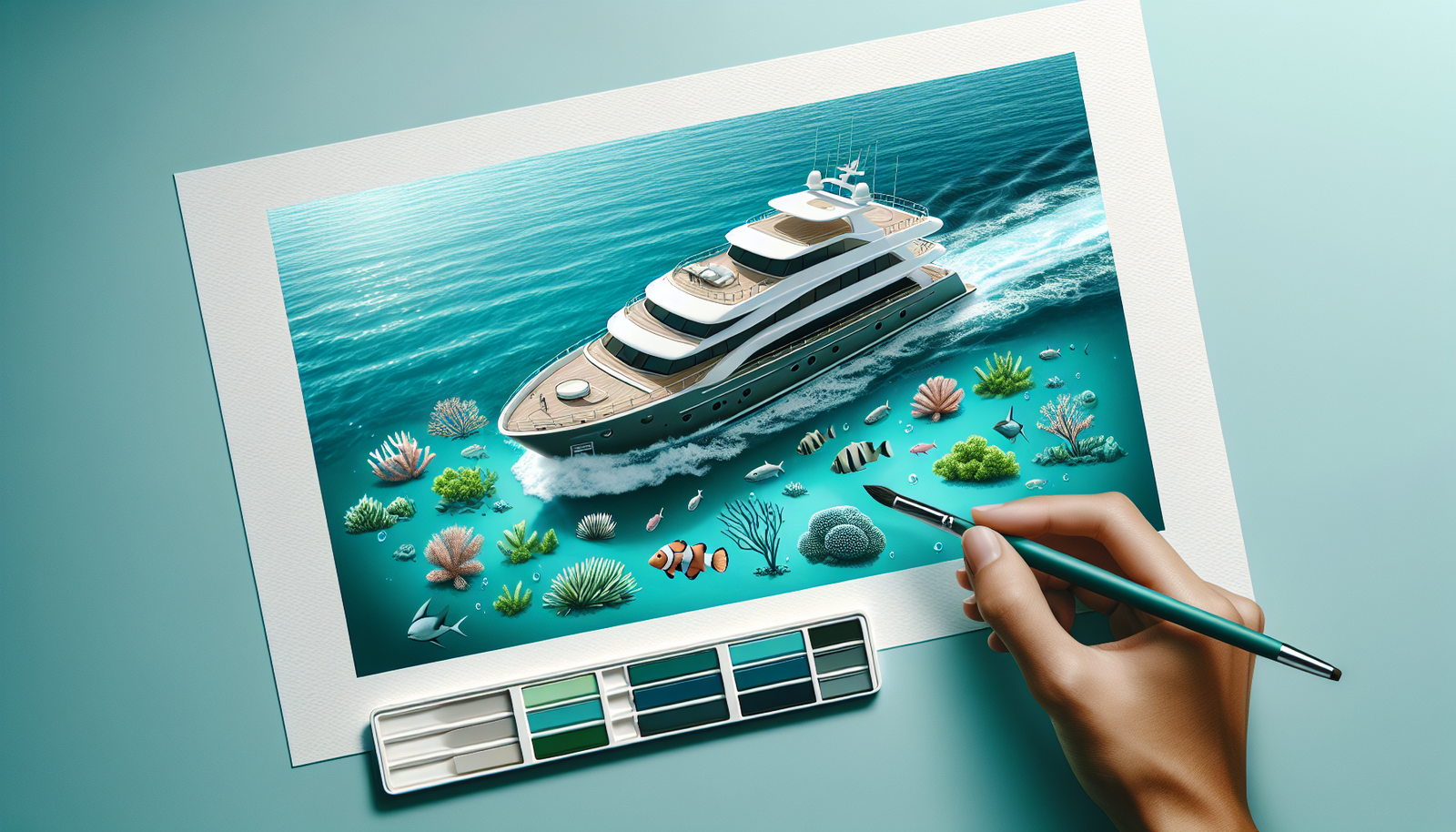Imagine navigating your boat across a serene blue lake, the sun bouncing off the water, with a light breeze brushing past. As peaceful and idyllic as this scenario may seem, there’s a hidden environmental impact. ‘Beginner’s Guide to Eco-friendly Boating Practices’ is your compass to maintaining the beauty of our waters while enjoying the thrill of sailing. This guide lets you discover sustainable boating habits, touching on topics such as reducing fuel consumption, non-toxic boat cleaning solutions, destigmatizing electric boats, and respectful wildlife interactions. It’s about aligning your love for boating with preserving nature, ensuring a satisfying and guilt-free boating experience.
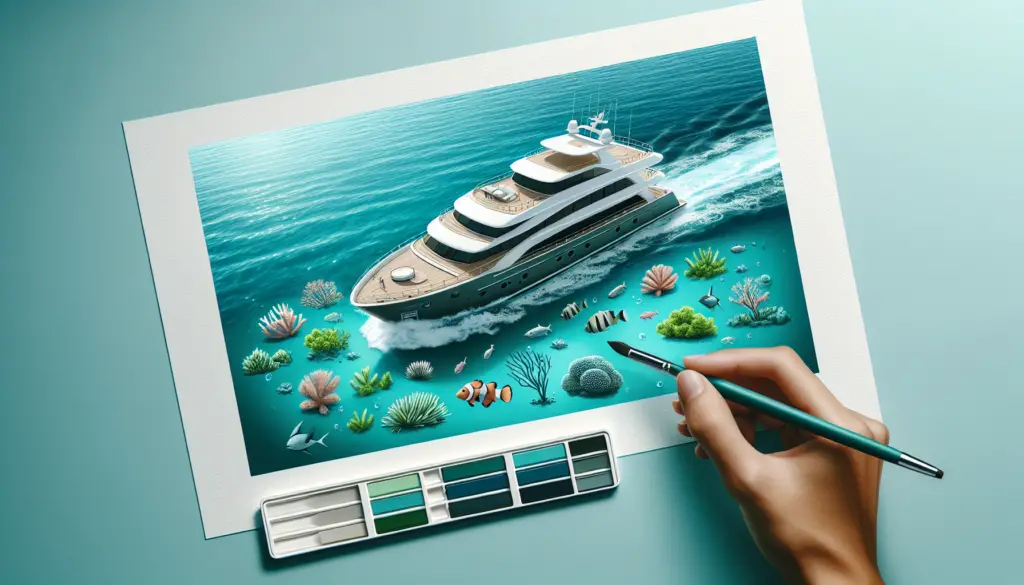
Understanding the Concept of Eco-friendly Boating Practices
Eco-friendly boating refers to practices and principles that help mitigate and minimize the impact of boating on marine ecosystems. It’s all about making changes in how you operate, maintain, and generally use your boat, in ways that lessen harm to the marine environment.
Definition of eco-friendly boating
Eco-friendly boating, also known as green boating, is all about conscious and considerate actions. It involves using boats that are designed to be fuel-efficient, powered using renewable energy or minimizing waste by relying on renewable resources. It includes choices like using eco-friendly cleaning products, going plastic-free, and treating waste appropriately. It’s also about adopting behaviours that protect marine life – like adhering to no-anchoring zones, and being mindful of your noise levels.
Importance of eco-friendly boating
Eco-friendly boating is not just another trend. It’s a crucial aspect of making sure that our oceans and marine life stay healthy in the long run. Every year, there is an increasing volume of boats on the waters, which leads to noise pollution, chemical pollution, marine habitat damage and trash in the seas among other issues. Eco-friendly boating practices can mitigate these harmful impacts, preserving our water bodies for future generations.
Impacts of regular boating on the environment
Regular boating can have quite a significant impact on the marine environment, damaging critical habitats, introducing pollutants, and disrupting the balance of marine life. Noise from engines can cause stress for marine creatures. Fuel leaks, oils, and other chemicals can contaminate the waters, while waste and litter from boats can pollute the seas and injure aquatic life.
Recognizing the Impact of Boating on Marine Life
It’s highly important to understand how boating affects marine life, in order to take appropriate steps to mitigate negative impacts.
Effects of noise pollution
Noise pollution from motorized boats can disturb and even harm marine animals, particularly those relying on sound for communication, foraging, or navigation. High noise levels can stress animals, disrupt their feeding and mating patterns, and sometimes even result in physical damage or death.
Impact of chemical pollution
Boating can introduce an array of chemicals into the water, including fuel and oil, cleaning products, and anti-fouling paints. These chemicals can poison marine creatures, damage sensitive habitats, and even enter the food chain, posing risks to marine ecosystems and human health alike.
Impact of debris and litter on marine life
Debris and litter from boats – from plastic bags and bottles to abandoned fishing gear – can cause significant harm. Marine animals may ingest trash, or become entangled, leading to injury or death. Debris can also damage habitats and contribute to the global issue of plastic pollution.
Role of boat propulsion in impacting marine life
Boat propulsion can create physical disturbances that affect marine life. High speeds and propeller actions can lead to injury or death for marine creatures. Erosion caused by wake can also harm coastal habitats.
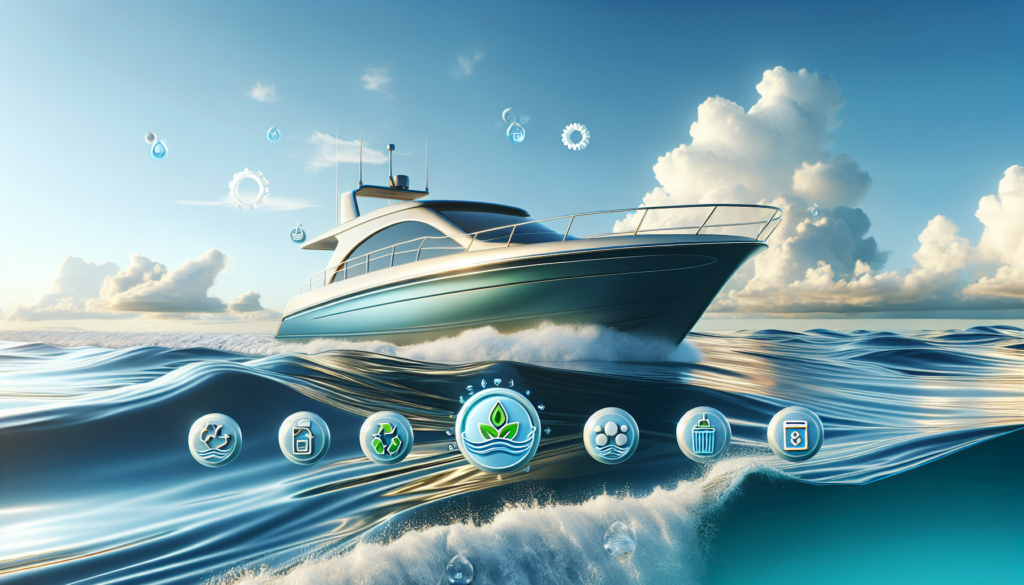
Adopting Eco-Friendly Engine Practices
One significant way to reduce your boating impact is to focus on your engine practices.
Using cleaner fuels
Switch to cleaner, more sustainable fuels. Biofuels, for instance, release fewer pollutants when burned compared to conventional fossil fuels.
Regular engine maintenance
Regular maintenance can help spot fuel or oil leaks early, reducing pollution. An efficient engine also consumes less fuel, which considers both your pocket and the environment.
Efficient use of engine power
Operating the boat at the most fuel-efficient speed, usually just below the maximum speed, minimizes fuel consumption and lowers emissions.
Opting for electric engines
If possible, consider switching to an electric motor. Electric boat engines are quieter, don’t emit exhaust gases and don’t risk any oil or fuel spills.
Implementing Waste Management on Boats
Managing waste wisely on your boat is another vital aspect of going green.
Avoiding single-use plastics
Cut down on single-use plastics, replacing them with reusable water bottles, bags, and containers.
Proper disposals of garbage
Never throw garbage overboard. Always store trash safely onboard until you can dispose of it properly on land.
Recycling waste
Recycle as much waste as possible. Many marinas and harbors have recycling facilities.
Composting on board
If possible, compost organic waste onboard. This will reduce the amount of waste you need to dispose of and potentially provide a rich nutrient source for your plants back on land.
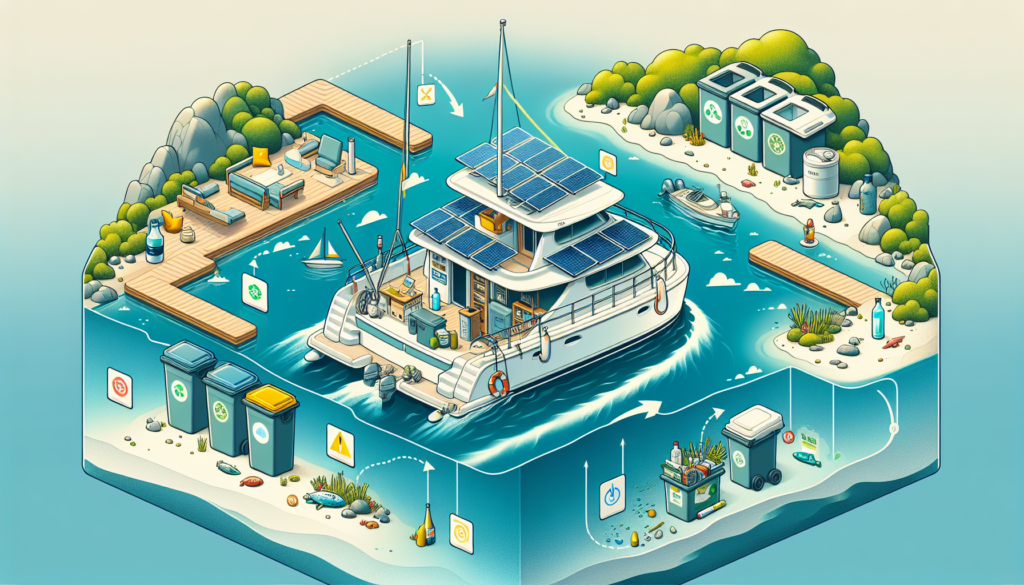
Committing to Chemical-Free Cleaning and Maintenance
One of the biggest sources of boat-related pollution comes from cleaning and maintenance products.
Selecting eco-friendly cleaning products
Choose eco-friendly cleaning products that won’t harm aquatic life. Look for biodegradable, phosphate-free options.
Understanding the dangers of anti-fouling paints
Anti-fouling paints, meant to prevent marine organisms from attaching to the boat hull, often contain highly toxic heavy metals that can damage marine ecosystems. Consider alternatives such as silicon-based coatings.
Alternatives to harmful cleaning products and maintenance materials
There are numerous natural and non-toxic alternatives to traditional boat cleaners. Vinegar, baking soda, and citrus-based products can all clean effectively without harmful side effects.
Selecting Eco-Friendly Equipment and Gear
If you’re serious about green boating, consider eco-friendly equipment and gear.
Eco-friendly navigation systems
Eco-friendly navigation systems, such as those that prioritize fuel efficiency or route options to avoid sensitive areas, can be part of responsible boating.
Solar-powered equipment
Solar-powered equipment, including lights and appliances, not only reduces fuel use and emissions, but also allows for a quieter boating experience.
Sustainable fishing gear
If you fish, choose gear that minimizes impact on non-target species and habitats. Avoid gear that may become “ghost gear” – abandoned, lost or discarded fishing gear that continues to ensnare fish indiscriminately.
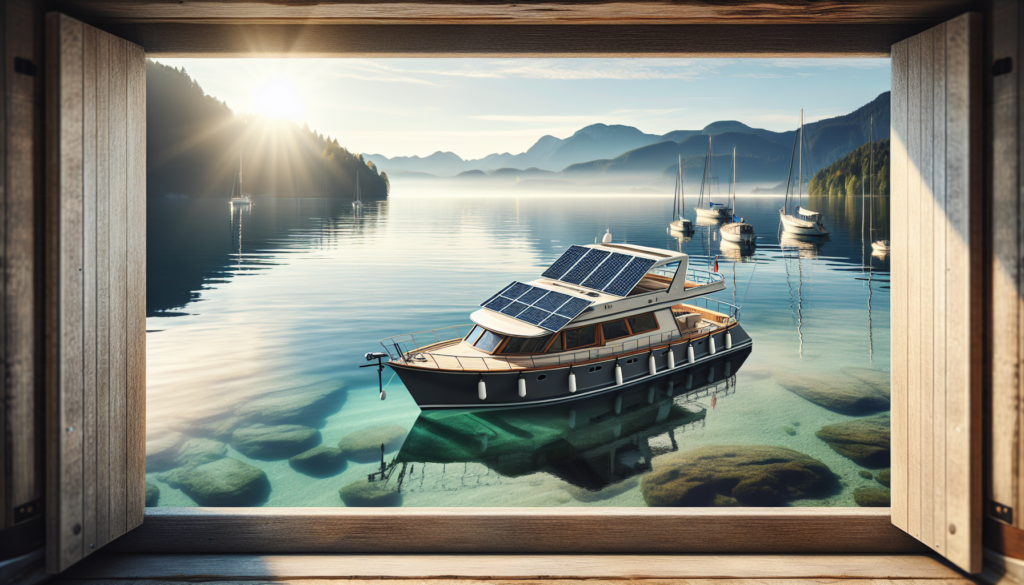
Adopting Responsible Boating Habits
Conscious and careful behaviour should be the cornerstone of your boating practices.
Sticking to established routes
Avoid off-roading. Stick to charted waterways and established routes to minimize damage to seafloor habitats and disturbance to wildlife.
Avoiding sensitive wildlife areas
Be aware of and respect no-go zones and marine protected areas. Avoid areas that are critical for breeding, feeding or migrations.
Observing low-wake zones
High speed boating generates significant wake, which can cause shoreline erosion and disturb wildlife. Adhere to speed limits and low-wake zones.
Impact of Anchoring on Marine Habitats
How and where you anchor your boat can have significant effects on the marine habitat.
Understanding the environmental impact of anchoring
Anchoring can have severe impacts on the seabed. It can destroy seagrass and other important habitats, disturb bottom-dwelling creatures and stir up sediments, reducing water quality.
Using eco-friendly anchors and moorings
Look for eco-friendly anchors and mooring systems that minimize damage to the seabed, or use docking facilities whenever possible.
Methods to anchor without damaging the sea bed
Carefully select anchor spots, avoiding sensitive habitats. Use techniques such as setting the anchor gently and using adequate scope to avoid dragging, which can scar the seafloor.
Getting Involved in Conservation Efforts
Participating in conservation efforts is a great way to give back to the marine environment that you enjoy so much.
Participating in beach clean-ups
Get involved in local beach and underwater clean-ups. It’s a tangible way to remove trash from our oceans and shores.
Supporting marine life preservation organizations
Support organizations and initiatives that are championing the protection and conservation of marine life. This can be through donations, volunteering or responsible tourism practices.
Advocacy and raising awareness about eco-friendly boating
Advocate for eco-friendly boating within your network. Share the knowledge you have and the practices you’ve adopted. Encourage marinas and boating clubs to adopt eco-friendly policies.
Educating Others about Eco-friendly Boating Practices
Undertaking eco-friendly boating practices is a great first step, but spreading the word is just as important.
Promoting eco-friendly boating among peers
Promote the idea of eco-friendly boating within your peer group. Talk about the changes you’ve made, offer tips and share your experiences.
Offering training or workshops on eco-boating
Consider running or supporting training workshops on eco-boating, sharing your knowledge and experience with others who can then put those skills into practice.
Using social media to raise awareness
Use your social media platforms to raise awareness of eco-friendly boating practices. Share facts, tips, and resources, and inspire others to make changes too.
In conclusion, eco-friendly boating requires awareness and active participation from every individual involved in the boating community. While it involves making some changes, the rewards – a healthy, vibrant marine environment to enjoy and explore – are undoubtedly worth it.

